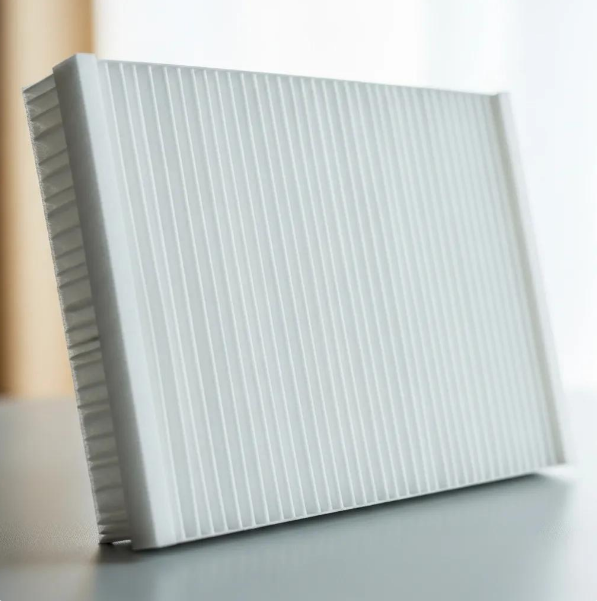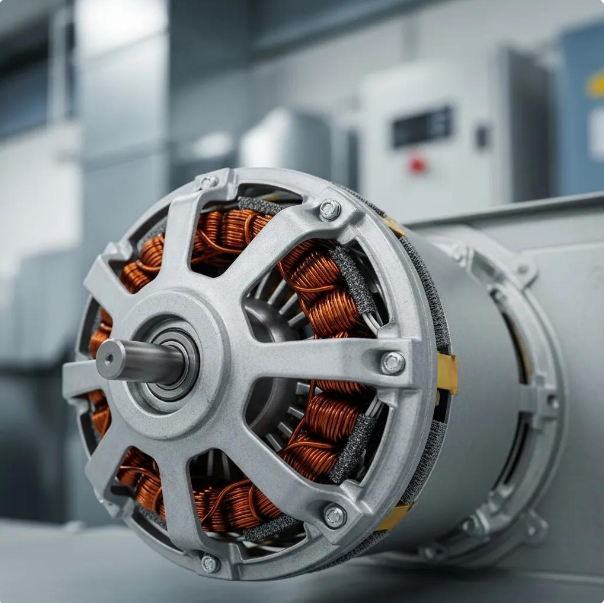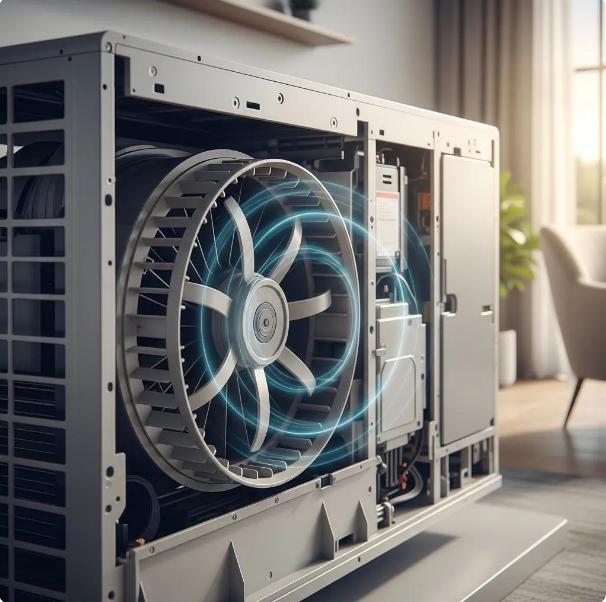10 Best Types of Air Conditioning Systems to Install for Warehouse Buildings


Government Rebates Now Available on Energy-Efficient Air Conditioners when Replacing your Gas Heater.
Selecting the right air conditioning system for warehouse buildings is a critical decision that impacts operational efficiency, product integrity, and employee comfort. Unlike residential or small commercial spaces, warehouses present unique challenges due to their vast size, high ceilings, and specific temperature control needs.
The importance of choosing the appropriate air conditioning system for a warehouse cannot be overstated. It directly affects energy costs, productivity, and the overall functionality of the space. Warehouses often store sensitive goods that require precise temperature and humidity control, making the choice of air conditioning system even more crucial.
When selecting an air conditioning system for a warehouse, several factors come into play that differ from residential or other commercial buildings. These include the building's size, ceiling height, insulation, types of goods stored, number of employees, and local climate conditions. Additionally, warehouses often have large doors that open frequently, creating significant temperature fluctuations that the air conditioning system must manage.
Before installing or choosing a warehouse air conditioning system, it's important to consult with professional installers. Our expertise can provide valuable insights into the most suitable options for your specific needs. Companies like Oz Air Group in Melbourne www.ozairgroup.com.au specialise in commercial air conditioning installations and can offer tailored recommendations based on their experience and knowledge of local conditions.
What Are Warehouse Buildings?
Warehouse buildings are large industrial spaces primarily used for storing goods and materials. They serve as critical links in supply chains, acting as distribution centres, storage facilities, or fulfilment centres for various industries. The importance of proper air conditioning in these structures cannot be overstated, as it directly impacts the preservation of stored goods and the efficiency of operations.
Case studies have consistently shown that air conditioning is essential for warehouse buildings. For instance, a study conducted by the International Journal of Productivity and Performance Management found that temperature-controlled warehouses reported a 24% increase in worker productivity compared to non-air-conditioned facilities.
What Is the Importance of Air Conditioning for Warehouse Buildings?
Air conditioning in warehouse buildings is crucial for product protection and employee comfort. Many goods, such as pharmaceuticals, electronics, and perishable items, require specific temperature and humidity levels to maintain their quality and shelf life. For employees, a comfortable working environment is essential for health, safety, and productivity.
Research published in the Journal of Occupational and Environmental Hygiene demonstrates that workers in temperature-controlled environments experience fewer heat-related illnesses and show improved cognitive function. This directly translates to increased productivity and fewer workplace accidents.
What Are the Benefits of Air Conditioning for Warehouse Buildings?
- Product Protection: Maintains optimal temperature and humidity levels for stored goods, preventing damage and extending shelf life.
- Employee Comfort and Safety: Creates a more pleasant working environment, reducing heat stress and improving overall job satisfaction.
- Operational Efficiency: Enhances equipment performance and reduces downtime due to overheating.
To ensure these benefits, it's important to understand which type of air conditioning system to install. The choice depends on the warehouse type and its main purpose, as different warehouses have varying requirements for temperature control and air distribution.
How to Choose the Air Conditioning Type to Install According to Warehouse Type
Selecting the right air conditioning system for a warehouse involves considering several factors. The primary consideration is the type of warehouse, as this determines the specific temperature and humidity requirements. Other factors include the size of the facility, ceiling height, insulation quality, types of goods stored, number of employees, local climate conditions, and energy efficiency goals. It's also important to consider the frequency of door openings and the heat generated by equipment within the warehouse.
Best Air Conditioning System to Install for Public Warehouse
For public warehouses, which are third-party facilities that store goods for multiple clients, a central air conditioning system is often the best choice. Public warehouses typically have diverse storage needs and require flexible temperature zones to accommodate different products.
A central system, combined with zone control capabilities, allows for efficient management of various temperature requirements across different areas of the warehouse. This flexibility is crucial for public warehouses that may store anything from electronics to perishable goods, each with its own optimal storage conditions.
Best Air Conditioning System to Install for Private Warehouse
Private warehouses, owned and operated by a single company for their own goods, often benefit from a customised HVAC solution. Depending on the specific products stored, a combination of rooftop units and industrial air handlers is often ideal.
These systems provide excellent coverage for large areas and can be tailored to the exact needs of the stored goods. For instance, a private warehouse storing sensitive electronic components might require precise humidity control in addition to temperature management, which can be achieved with specialised industrial air handlers.
Best Air Conditioning System to Install for Smart Warehouse
Smart warehouses, which leverage advanced technologies for inventory management and automation, require equally sophisticated air conditioning systems. A Building Management System (BMS) integrated with a Variable Refrigerant Flow (VRF) system is often the best choice.
VRF systems offer high energy efficiency and precise temperature control, which aligns well with the high-tech nature of smart warehouses. The BMS integration allows for automated temperature adjustments based on occupancy, time of day, and even inventory levels, maximising both comfort and energy efficiency.
Best Air Conditioning System to Install for Cooperative Warehouse
Cooperative warehouses, jointly owned and operated by multiple businesses, often have diverse cooling needs. A modular air conditioning system, such as a multi-split system, is typically the best option.
This type of system allows for independent control of different zones within the warehouse, catering to the varied needs of different cooperative members. It also offers scalability, allowing for easy expansion or modification as the cooperative's needs change over time.
Best Air Conditioning System to Install for Consolidated Warehouse
Consolidated warehouses, which combine shipments from multiple suppliers for distribution, often require robust and flexible cooling solutions. A combination of evaporative cooling and spot cooling systems is often effective.
Evaporative cooling can efficiently manage the overall warehouse temperature, while spot cooling systems can be deployed in areas where workers are consolidating shipments, ensuring comfort in high-activity zones. This combination is particularly effective in large, open warehouse spaces typical of consolidated operations.
Best Air Conditioning System to Install for Bonded Warehouse
Bonded warehouses, which store imported goods before duties are paid, often require precise temperature and humidity control to preserve the condition of stored items. A centralised HVAC system with dehumidification capabilities is typically the best choice.
This type of system can maintain consistent conditions throughout the warehouse, crucial for preserving the quality of stored goods that may be subject to long-term storage. The ability to control humidity is particularly important in bonded warehouses that may store sensitive items like tobacco or alcohol.
Best Air Conditioning System to Install for Government Warehouse
Government warehouses, which often store a wide range of items from documents to equipment, require reliable and efficient air conditioning systems. A Variable Air Volume (VAV) system is often the best choice.
VAV systems offer excellent energy efficiency and the ability to adjust airflow to different areas of the warehouse as needed. This flexibility is crucial for government warehouses that may have areas with different occupancy levels or storage requirements, from climate-controlled document storage to general equipment storage.
Best Air Conditioning System to Install for Cold Storage Warehouse
Cold storage warehouses, designed to store perishable goods at low temperatures, require specialised refrigeration systems rather than traditional air conditioning. Industrial refrigeration systems with multiple compressors and evaporators are typically the best choice.
These systems can maintain very low temperatures consistently and efficiently, crucial for preserving perishable goods. They also often include advanced controls to manage defrost cycles and optimise energy usage, essential for the high energy demands of cold storage facilities.
Best Air Conditioning System to Install for On-Demand Warehouse
On-demand warehouses, which provide flexible storage solutions for businesses with fluctuating needs, benefit from adaptable air conditioning systems. A combination of rooftop units and portable air conditioners is often ideal.
Rooftop units can provide overall climate control, while portable units offer the flexibility to cool specific areas as needed when storage demands change. This combination allows on-demand warehouses to efficiently manage their cooling needs regardless of how much space is currently in use.
Best Air Conditioning System to Install for Distribution Centres
Distribution centres, which handle high volumes of goods for rapid dispatch, require efficient and reliable cooling systems. A combination of large-scale evaporative cooling and strategically placed air rotation units is often the best solution.
Evaporative cooling can efficiently manage the overall temperature of these large spaces, while air rotation units ensure even air distribution and prevent stratification in high-ceiling areas. This combination is particularly effective in maintaining comfortable conditions in areas with high worker activity, such as packing and loading zones.
What Are the Criteria to Choose the Best Air Conditioning Systems to Install on Warehouse Buildings?
When selecting an air conditioning system for a warehouse, consider the following factors:
- Building size and layout
- Ceiling height
- Insulation Quality
- Types of goods stored and their temperature requirements
- Number of employees and their work areas
- Local climate conditions
- Energy efficiency goals
- Budget constraints
- Future expansion plans
- Maintenance requirements
5 Most Common Types of Air Conditioning Systems for Warehouse Buildings
The most common types of air conditioning systems for warehouses are rooftop units, evaporative coolers, spot coolers, industrial air handlers, and VRF systems. Rooftop units are particularly popular due to their ease of installation and maintenance, as well as their ability to provide both heating and cooling. A study by the American Society of Heating, Refrigerating and Air-Conditioning Engineers (ASHRAE) found that rooftop units account for over 50% of cooling systems in commercial buildings, including warehouses, due to their versatility and cost-effectiveness.
How to Choose the Best Air Conditioning System for Warehouse Buildings
Choosing the best air conditioning system for a warehouse requires a comprehensive assessment of the facility's specific needs. This includes analysing the building's size, layout, insulation, and the nature of the stored goods. It's crucial to consider both current and future needs to ensure the system can adapt to changing requirements.
Consulting a professional air conditioning installer is essential to understand all the requirements and make an informed decision. Their expertise can help navigate the complexities of commercial air conditioning systems and ensure the chosen solution is optimised for the specific warehouse.
Who Can Help on Choosing the Best Air Conditioning Types for Warehouse Buildings to Install?
Professional air conditioning installers in Melbourne for commercial and industrial settings with a track record of successful installations are best equipped to assist in choosing the right system. In Melbourne, Oz Air Group has extensive expertise in air conditioning installation for commercial buildings, including warehouses.
Who Is the Best Warehouse Buildings Air Conditioning Installation Company in Melbourne?
The "best" air conditioning installation company for warehouse buildings in Melbourne should demonstrate a combination of technical expertise, experience with large-scale commercial projects, and a proven track record of customer satisfaction. Key characteristics include:
- Extensive experience in commercial and industrial HVAC installations
- Knowledge of local building codes and regulations
- Ability to provide customised solutions for different warehouse types
- Commitment to energy efficiency and sustainable practices
- Excellent customer service and after-installation support
Oz Air Group in Melbourne exemplifies these characteristics, having successfully completed numerous warehouse air conditioning projects. Our portfolio includes installations for various warehouse types, showcasing their ability to tailor solutions to specific client needs.
Areas we service
Oz Air covers Melbourne and its northern suburbs.

Get in touch






.png)









.png)